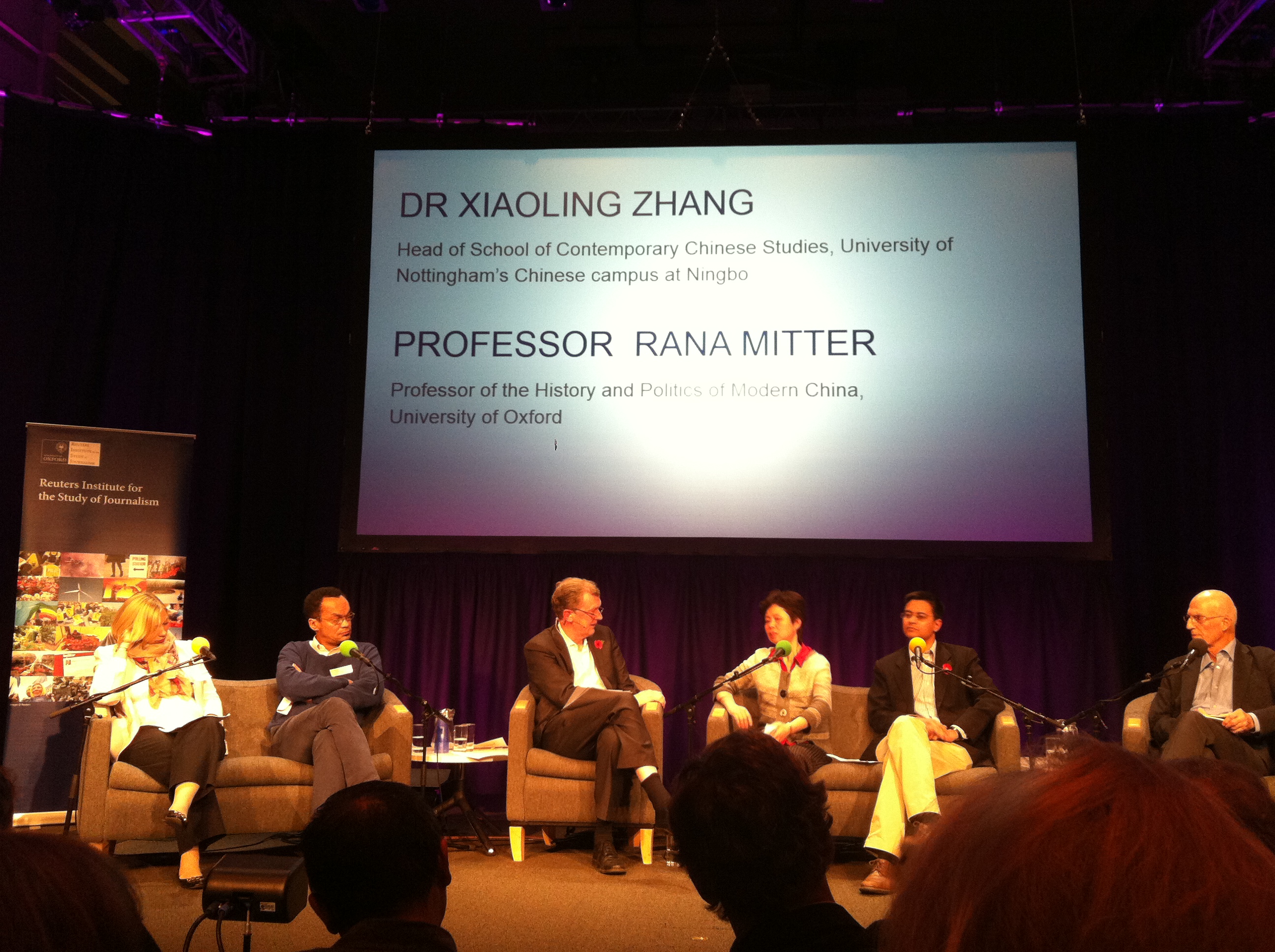
November 13, 2013, by Tony Hong
A world of shared influence
By Dr. Xiaoling Zhang,
Head of Contemporary Chinese Studies at the University of Nottingham Ningbo China,
Associate Professor in Chinese Studies at the University of Nottingham.
Soft power has beguiled governments around the world. Appealingly, it serves national interests, cheaper than the exercise of hard power (money and force), at least in the short term, and nevertheless promises to win hearts and minds of overseas public with the right kind of culture, political values and foreign policies. Besides, other governments spend money and effort on it.
At the recent seminar titled ‘A World of Influence’ organized by the Reuters’ Institute, BBC World Service, and the BBC Academy’s College of Journalism on 5th of November 2013, soft power became the key word for the chair and the panellists in their discussion as well as their interaction with the audiences on the contest for influence between international media . The American policy intellectual, Joseph Nye, father of the term, sent his views in a video clip on the importance of soft power and the key to winning it in today’s world where information explodes — indeed, if you think about the well-established BBC World Service, CNN, AP, and the new comers to the global media-scape such as Russia Today, China Central Television (CCTV), Aljazeera TV, Press TV), not to speak the increasing amount of information circulated on social media. Statistics does show that a large proportion of the young population get news from Facebook or Twitter.
That the Chinese government supports its national flagship CCTV and other media outlets to win the soft power war with fat check books at a time when many others are downsizing their support for their public diplomacy outlets has been of concern to many. After all, China declares that its mission is to stop the monopoly of information by the West – mostly biased towards China and its brothers in the developing countries. CCTV has expanded its international presence significantly in the last decade, so much so that major media outlets are no longer ignoring its presence. Another worrying factor for the more established media organisations such as BBC is that CCTV and Xinhua News Agency sell their content to cash-tight media organisations in less developed countries at a very low price or simply offer them free. Should they succumb to a different kind of professionalism practiced by their colleagues in other countries such as China, but that may put their hard earned credibility and trust at risk?
Prof Joseph Nye comforts the worriers that credibility and trust is what matters in the contest ‘to affect others to obtain the outcomes you want’. It is obvious that Joseph Nye does not think China is likely to go too far with soft power as far as its media outlets are concerned. On the one hand, good stories, and the way stories are told, is what matters. Chinese media are known for acting as watchdogs for the government rather than of the government. They need to stay inside the line drawn by the government, and investigative journalism in China is known for being strictly censored. In addition, who tells the stories matters too. CCTV is a platform for the government and unfortunately, in the 21st century governments are less trusted.
However, it is very easy to confuse resources with sources of soft power. Resources do not always translate into sources. In the case of media organisations, be they CCTV, BBC or Aljazeera, they are first of all resources of soft power – the government can stage soft power via these platforms. They can also become sources of soft power, if they are impartial and balanced in their reporting, giving voices to all parties.
And things do change. The US security, said the New York Times, is built not only on its technological capabilities, but also on its soft power and its alliances. However, now China can take delight in elaborating on the two charges America was caught: tapping the mobile phones of world leaders, and hoovering up vast amounts of information about European citizens’ communications.
So things for media organisations such as BBC to consider, if they can, are whether it wants to be the government’s resource, source, or both, of soft power. It is wants to be the former, then it is a platform for the launch of soft power. If it wishes to continue to function as a source of soft power, then it needs to stick to its professionalism. It may be hard to become both, but it is not impossible. China has succeeded in claiming its stake in the global flow of information, making its present felt and providing some alternative views.
Result? Each will establish their share of influence in the world. It is not only about who is telling what stories, but also but also who is listening to the stories.

‘A World of Influence’ seminar organized by the Reuters’ Institute, BBC World Service, & the BBC Academy’s College of Journalism on the 5th of November 2013
No comments yet, fill out a comment to be the first

Leave a Reply